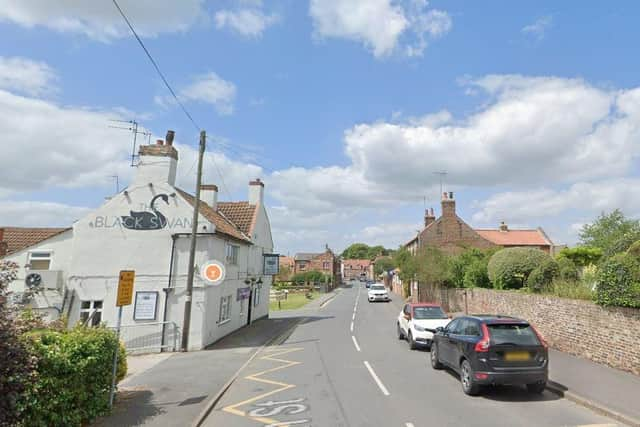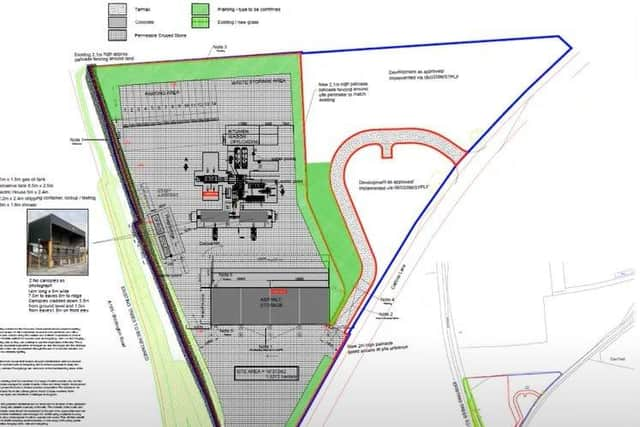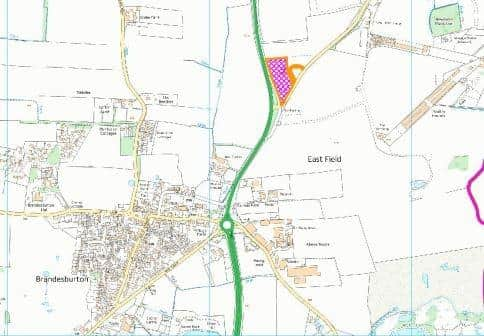Tears of relief as plans for asphalt plant near Brandesburton are rejected by councillors
There has been nearly 500 objections to plans by Newlay Asphalt and MB Goodwin (Skipsea) to build a plant at the old RAF Catfoss base, half a kilometre from Brandesburton.
Resident Jackie Suthenwood said there were "tears of relief" following the vote on Thursday. She said: "There was relief, elation, but the dawning of the realisation that this will probably go to appeal. This is a rural area, it's tourism and it's farming, and this industrial thing has no place here."
Advertisement
Hide AdAdvertisement
Hide AdCouncillors had been on a site visit to Newlay's plant at Dewsbury, but came away with different opinions about its impact.


Councillor John Whittle, who moved refusal, said the plant was "making quite a bit of noise" and a "few smells" and he'd come away with dust on his clothing and shoes.
At the site near Brandesburton he found the prevailing wind blew in the general direction of the village, where dust would fall on the children's play ground, the beer gardens and caravan parks.
And he said visitors would not pay good money "to stay somewhere where they get dust blown in their faces, hear a distant clanking sound and niff the not unpleasant but nevertheless toxic aroma of bitumen and asphalt".
Advertisement
Hide AdAdvertisement
Hide AdHe added: "We have residents who do not deserve to have this inflicted on them, children who until now are playing in fresh air."


A lot of the discussion centred on the impact on health, with objectors concerned about chemicals used in the process such as benzene, cadmium and formaldehyde.
Newlay operations director Jamie Brown said information used by objectors derived from US plants which used heavy fuel oils in the process of drying aggregates, whereas UK plants used light fuel oils, with a higher percentage of bio oils.
The site already had consent for industrial use, and the plans had been found acceptable by officers and statutory consultees.
Advertisement
Hide AdAdvertisement
Hide AdBut residents said it would be less than 500 metres from the nearest home. The school, church and residential area would be less than one kilometre away


Councillor Geraldine Mathieson said the US plants operated very differently to their UK counterparts, and UK authorities including the Health and Safety Executive shared the same view: “If you got very close it could be unpleasant and dangerous.
“Simply to smell it from a distance is not a danger to health, which is why public protection say there isn’t a problem.”
However she said a low-level smell could cause annoyance – and that could impact on visitors and residents.
Advertisement
Hide AdAdvertisement
Hide AdCouncillor Nick Coultish said 50m from the Newlay plant in Dewsbury there was no smell, no noise and no dust, adding: “I disagree with councillors that there would be an impact on residential amenity.
“Like Councillor Mathieson I struggled to find any evidence that a plant like this in the UK would create any health risk, it is a completely different process to the one in America.”
However committee chair councillor Leo Hammond felt on balance it was “not OK” and supported refusal on the grounds of the damaging impact it would have on a rural area.
